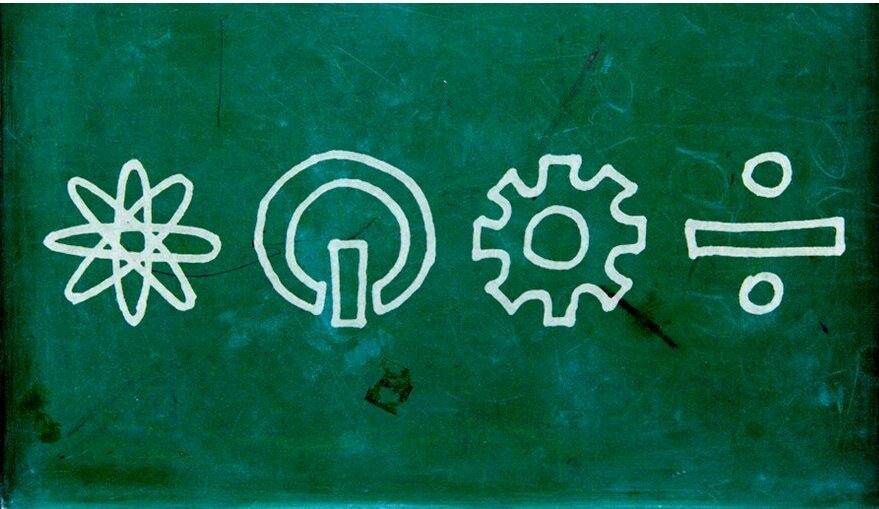Opinion | A Loss of the Arts Is a Loss for All
As society and education pushes more students towards STEM, what does society miss out on?

As the world becomes increasingly run by technology, society continues to shift accordingly. Progress seems to be defined in scientific advancements, driven by numbers, data, and coding, ultimately neglecting the unquantifiable human aspects of such change. Disciplines in the Arts are often seen as simple, only requiring soft, “easy” skills that anyone can pick up. This argument leads to the assertion that STEM majors are more readily employable. Essentially, society values the applicable “skills” obtained in science courses over the critical social questions learned through an Arts degree. So what does society miss out on as these ‘softer’ disciplines begin to go extinct? Quite a lot, as it turns out. This general shift away from the Arts and towards STEM subjects devalues areas of knowledge such as philosophy, sociology, and English literature, which have long been crucial to society’s progression.
The Arts disciplines are known as subjects where students are asked “why” and “how” questions: “Why is your conclusion important, and how does it contribute to society?” These disciplines ask students first to understand and then challenge the very foundation of society. However, with fewer people entering into these disciplines of study and less research funding allocated to the humanities, a declining number of resources are set aside to ask these crucial questions. How can society propel itself forward if the people and money doing this work simply are not there? Perhaps, some now view progress as being measured purely by technological advancement. But, as long as politics, the economy, and culture exist, society must have individuals who can adequately communicate their ideas, discuss legislation in government, think philosophically about social advancement, and push the envelope on what society looks like outside of technology.
Along with a lower emphasis placed on the Arts comes the difficulty of many to properly communicate their ideas. One of the many “soft” skills taught in the Arts is communication: reading, writing, presenting, asking questions, creating a thesis. Conversely, the sciences teach individuals how to make things. One is not better than the other, but when the sciences never teach people how to communicate what they are making, many new ideas and innovations are inaccessible for those who do not have the background knowledge or skills. Instead of teaching everyone how to code, those who do know should understand how to communicate their ideas properly. After all, people can carry communication skills through every aspect of life. The Arts’ so-called “soft” skills are beneficial. Still, with fewer people studying them and these skills never transferring to other disciplines, these lessons are, at the very least, devalued in society.

As fewer people ask these crucial questions of society and contribute to essential services like the government, philosophy, and writing, an increasing number of individuals contribute to society through technological advancement. Yet, the lack of interdisciplinary knowledge means these companies cannot pose the questions needed for valuable progress to be made. Technology, such as the internet and social media, has wildly altered society, yet tech giants seem wholly unwilling and unable to consider the effects of their innovation. Meanwhile, those trained in the Arts often lack the desire to understand new technologies, meaning fewer people can challenge tech giants in their thinking. Simply look at American Congressional hearings, where politicians are wholly unequipped to question the implications of new technology. Meanwhile, the tech companies in question were never “trained in the art of meditative thinking or discourse” and thus do not know what questions to ask themselves. As a result, neither Arts nor science graduates can properly reach across disciplines to ask the sorely-needed questions.
A recent example of this social oversight occurred when a software company was asked to produce an AI-generated voice for Anthony Bourdain in his posthumous documentary “Roadrunner: A Film About Anthony Bourdain.” The software company never questioned this use of technology as Bourdain’s voiceover would be “speaking” words Bourdain had never said aloud. This ethical dilemma was not considered by either the film’s director or the software company, begging the question of how many other ethical considerations they similarly discarded. The lack of interdisciplinary skills hinders society’s progress by never encouraging the consideration of social, ethical, and political questions. Technology is, thus, created without question as to its purpose or meaning.

Given the dangers of devaluing the Arts, the logical extension should be that the education system encourages more students to see the Arts as a viable area of study. The reality, however, has been a push within education towards the STEM subjects that perpetuate many of these problems. Between 2006 and 2015, the number of students studying humanities in their undergraduate degree dropped by 20 percent, while STEM students rose by 22 percent. These statistics come as no surprise when observing school systems such as A-levels, a system originating in the United Kingdom that is now frequently implemented abroad. A-levels require sixteen-year-old students to specialize in three subjects, despite research suggesting that students instead should be taught a breadth of knowledge – including both English and Math – until the age of 18 to keep their ideas open. However, even students who take a wide range of subjects until they are 18 still feel pressure to pursue a degree in STEM once they graduate.
Once students reach post-secondary education, their schooling is structured so that studies across multiple subject areas are challenging, if not impossible. Programs are set up so that taking electives in other faculties is not only trickier to organize logistically, but the skills needed are so wildly different that students opt-out of these kinds of interdisciplinary study to protect their grades. And yet, when fewer students cross these faculty boundaries, less interdisciplinary study occurs. It is no wonder professionals in STEM fields cannot apply critical questions learned in an Arts course: they likely never took this course to begin.
The takeaway: unlike what the current education system would suggest, we should all learn to be more interdisciplinary in our studies, skills, and work. This should apply to not only STEM students but also those who haven’t and seem almost scared of science and technology. Our education, along with societal influences, teaches us to operate in parts. We each contribute to something particular based on our skill set; we are taught to focus on what we’re good at and ignore the rest. Yet, although we are taught to operate as individuals, we contribute to a larger collective. We must become accustomed to reaching across disciplines, collaborating, and challenging our thinking so that progress is pushed from all directions based on a wide range of knowledge. If we hope to positively contribute to the larger whole that is society, we must understand it in all its forms.
Featured Image: “What is the future of STEM education in the U.S.?” by opensourceway is licensed under CC BY-SA 2.0.
Edited by Alison Lee
